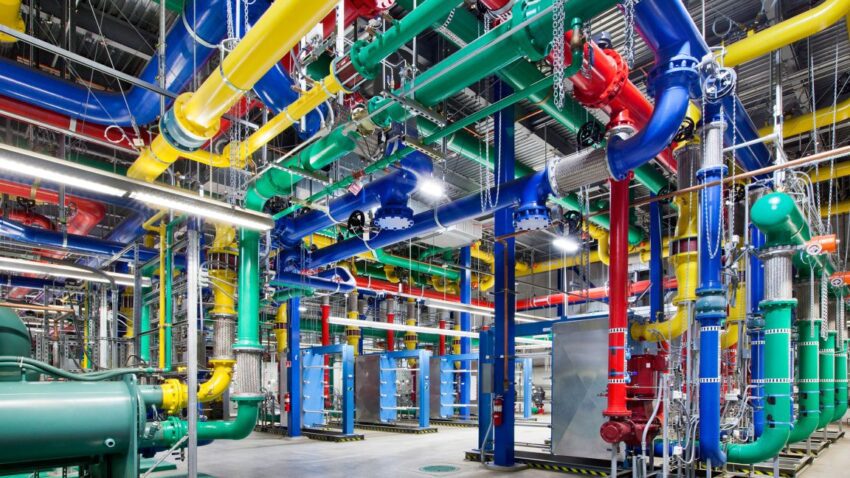
google tells employees it must double capacity Google has announced a significant challenge ahead as it aims to double its AI infrastructure capacity every six months to meet surging demand for artificial intelligence services.
google tells employees it must double capacity
The Current Landscape of AI Demand
As the conversation surrounding artificial intelligence (AI) continues to evolve, the industry is witnessing a paradox. While there are growing concerns about a potential bubble in AI investments, companies like Google and OpenAI are struggling to keep pace with the rapid demand for AI capabilities. This demand is not merely a trend; it reflects a fundamental shift in how businesses and consumers are beginning to integrate AI into their daily operations.
During a recent all-hands meeting, Amin Vahdat, Google’s head of AI infrastructure, conveyed the urgency of the situation to employees. He emphasized that the company must double its serving capacity every six months to effectively meet the burgeoning demand for AI services. This ambitious goal was further underscored by Vahdat’s assertion that Google needs to scale its infrastructure by “the next 1000x in 4-5 years.”
Understanding the Scale of the Challenge
The prospect of increasing compute capacity by a thousandfold within a relatively short timeframe is daunting. However, Vahdat outlined several constraints that complicate this endeavor. He pointed out that Google must deliver this increase in capability, compute, and storage networking “for essentially the same cost and increasingly, the same power, the same energy level.”
This statement highlights a critical issue in the tech industry: the balance between expanding capabilities and managing costs and energy consumption. As AI applications become more sophisticated, the demand for computational power grows exponentially. This necessitates not only advanced technology but also innovative approaches to infrastructure development.
Technological Innovations Required
To achieve the ambitious goal set by Vahdat, Google will need to invest in several key areas:
- Advanced Hardware: The development of more efficient chips and servers will be essential. Companies like Google are already exploring custom silicon, such as Tensor Processing Units (TPUs), designed specifically for machine learning tasks.
- Energy Efficiency: As the demand for compute power increases, so does the energy consumption associated with it. Google will need to focus on energy-efficient data centers and cooling technologies to minimize environmental impact.
- Cloud Infrastructure: Enhancements in cloud architecture will be necessary to support the rapid scaling of AI services. This includes optimizing data storage and retrieval processes to ensure that AI applications can operate seamlessly.
- Collaboration and Co-design: Vahdat emphasized the importance of collaboration among teams within Google. By working together, different departments can innovate and streamline processes to meet the growing demands of AI.
Implications for the Industry
The implications of Google’s ambitious plans extend beyond the company itself. As one of the leading players in the AI space, Google’s ability to scale its infrastructure will likely influence the broader market. If Google successfully meets its targets, it could set a precedent for other companies in the industry, pushing them to enhance their own capabilities.
Moreover, the demand for AI services is not limited to tech giants. Businesses across various sectors are increasingly adopting AI technologies to improve efficiency, enhance customer experiences, and drive innovation. This trend will likely create a ripple effect, prompting more companies to invest in their own AI infrastructure.
Stakeholder Reactions
The announcement has elicited a range of reactions from stakeholders in the tech industry. Investors are closely monitoring Google’s progress, as the company’s ability to meet its ambitious targets could significantly impact its stock performance and market position. Analysts are also weighing in, with some expressing skepticism about the feasibility of doubling capacity every six months.
On the other hand, employees at Google have shown a mix of enthusiasm and apprehension. While many are excited about the potential for innovation and growth, there are concerns about the pressure to deliver on such ambitious goals. The company’s leadership will need to ensure that employees are supported throughout this process, both in terms of resources and mental well-being.
The Future of AI Infrastructure
As Google embarks on this ambitious journey, the future of AI infrastructure remains uncertain yet promising. The company’s commitment to doubling capacity every six months reflects a broader trend in the tech industry, where rapid advancements in AI are reshaping the landscape.
In the coming years, we can expect to see significant developments in the following areas:
- AI Democratization: As infrastructure becomes more robust, AI technologies may become more accessible to smaller companies and startups, fostering innovation across various sectors.
- Regulatory Considerations: With the rapid growth of AI capabilities, regulatory bodies may begin to scrutinize the industry more closely, leading to new guidelines and standards for AI development and deployment.
- Ethical Implications: As AI becomes more integrated into everyday life, ethical considerations surrounding its use will become increasingly important. Companies will need to navigate these challenges carefully to maintain public trust.
Conclusion
Google’s ambitious goal to double its AI infrastructure capacity every six months underscores the growing demand for artificial intelligence services. While the challenges are significant, the potential rewards are equally substantial. As the company works to scale its capabilities, it will not only shape its own future but also influence the broader tech landscape.
In an era where AI is becoming integral to various industries, the ability to meet this demand will be crucial for maintaining competitive advantage. The coming years will be pivotal for Google and other companies in the AI space as they navigate the complexities of scaling infrastructure while managing costs and energy consumption.
Source: Original report
Was this helpful?
Last Modified: November 22, 2025 at 3:35 am
1 views















